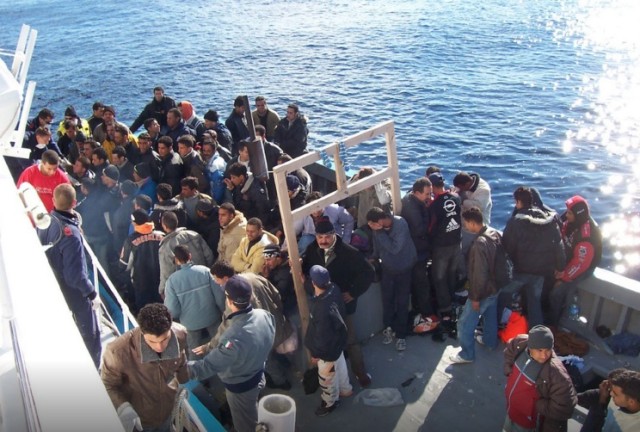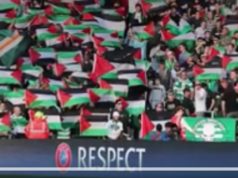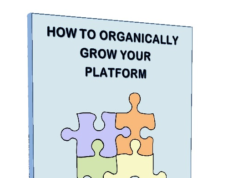Eid ul Adha is only a few days away. It will be celebrated across the world among 1.6 billion Muslims. At the same time the Hajj (sacred pilgrimage) would be completed by around 3 million. There will be several billions dollars spent on qurbani/udhiyah (sacrifice) and on festivities. Meanwhile there will be over 9 million Syrian and Iraqi refugees dispersed all over the world. Most of them are residing in refugee camps in Jordan, Turkey and Saudi Arabia. However with the end of Syrian conflict nowhere in sight, many refugees are haunted by the prospect of an uncertain future.
For establishing roots of stable livelihood and for a secure future the refugees are seeking pastures new. It is for this reason, wave after wave of Syrian and Iraqi refugees are knocking at the doors of Europe. Many of them are highly skilled and simply want to get on with their lives. Refugee camp may provide them with basic food and shelter but does not provide them a future that they seek for their children.
Albeit on a lower scale, but facing similar hardships, the Rohingya Muslims are looking towards the global community for relief.
At this point in time, when many Muslims are embarking on ways and deeds to please almighty, the question arises, how to best please him? How differently can I celebrate this Eid, that will bring me closer to God and at the same time heal the world?
Well, there are quite a few steps that can be taken. In the sub continent for instance, there is a prevalent concept that every adult member that has a certain amount of disposable income must participate in qurbani. In other parts of the Muslim world, one qurbani share is considered sufficient for the whole family. Given that the prophet (PBUH) established both practices, i.e. sacrificed one animal for the whole family and did at times perform Qurbani individually, perhaps there is a need for us to collectively reflect on this.
In the current climate, donating money can go a long way in helping the displaced Muslims. At the same time it must be understood that the act of qurbani is sacred and is closely guarded by custodians of faith. It is a sensitive issue.
Therefore this an appeal not to the muslims that are performing hajj or to those who can only manage one qurbani share for the whole family but it is an appeal to those Muslims who are thinking of multiple Qurbanis in a single household. This is also an appeal to Muslims living in the west. We would like to urge that budget that you have allotted for Qurbani, spend part of it towards a single qurbani (or single share in qurbani) and remaining portion of the budget should be sent to Syrian or Rohingya Muslims. One can even have their Qurbani done in these countries (Syria, Myanmar, Gaza etc).
There are several muslim charities which offer this facility. For example Human Appeal, Muslim Hands, Islamic Relief etc. These charities are already performing commendable humanitarian assistance to the needy in many parts of the world. These organizations are based in the UK and therefore have to go through rigorous financial audits to maintain their charity status. Thus a person can rest assured that his/her money will be spent on the cause they have opted for through these organizations.
As Muslims it is our first and foremost responsibility to look after our fellow Muslims. Unfortunately at this point in time there isn’t a global fund for Zakat money. Had there been an international committee that would collect Zakat funds from every country, than this money would have been enough to oversee many troubles in the world. It could have been spent on humanitarian causes. In the presence of such a fund the crisis of Syrian or Rohinghya Muslims would be less deeper. Thus having an international Zakat fund should be the next step but is a long term solution.
While donated money on this Dhul Hajjah may temporarily quell the anxiety of the refugees, but the need is to provide them secure future. Muslims need to summon their community spirit open their doors to the refugees. If in Asia alone every affluent Muslim household was to house a Syrian/ Rohingya family than the refugee crisis can easily averted. If nothing else, the OIC can facilitate the movement of these muslims refugees to other Islamic countries.
On a different note it must be added that many Muslims particularly from the west would be using long haul flights to perform Hajj. Given the growing effects of climate change are already upon us, it is incumbent to address this problem before it too leads to a humanitarian crisis. It is heartening to see that Muslims have acknowledged the problem. In the Islamic Climate Change Declaration, it has been pledged not only to create awareness within the Ummah but to take steps to reduce CO2 emissions substantially.
What can be done now in this regards? Well, there are organizations that help offset CO2 emissions. They do so by investing in forestation and other sustainability measures. Muslims that reside thousands of miles away from Saudi Arabia and have made their sacred journey should donate conscientiously to these organizations. For future Hajj journeys, perhaps a CO2 levy can be charged that directly goes towards a green fund. There is no doubt that if the ummah gets active, than we can collectively do a lot.
Just to reiterate, it is not being said in this article to refrain from qurbani altogether. All is being said is that we should perhaps donate the money that we will spend on second or third Qurbani to address the plight of our fellow muslims. Furthermore those who have used long haul flights should pay towards charities that help offsetting CO2 emissions.
Please share this article to spread awareness using the buttons below. Play your part be the change you wish to see in the world.






